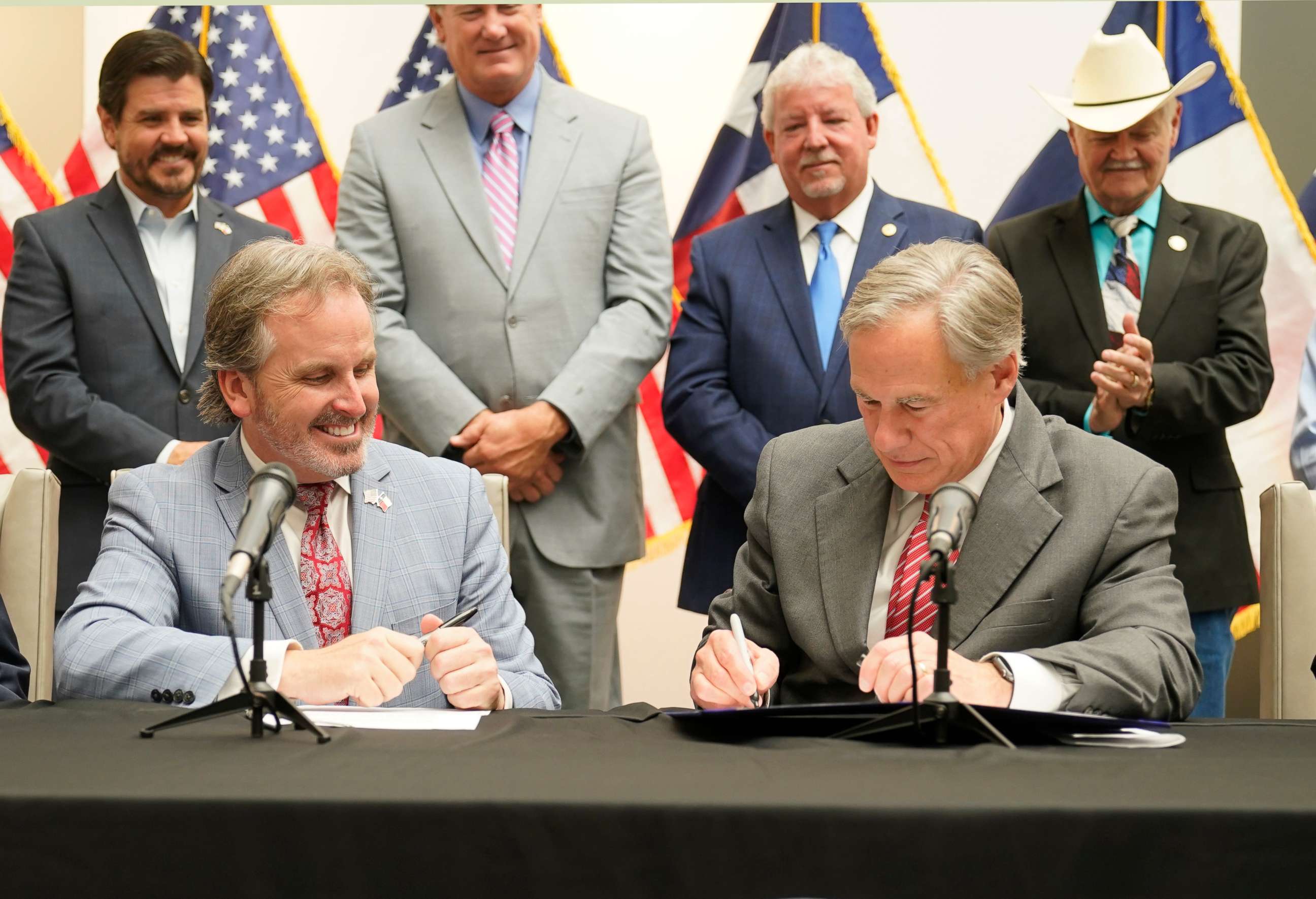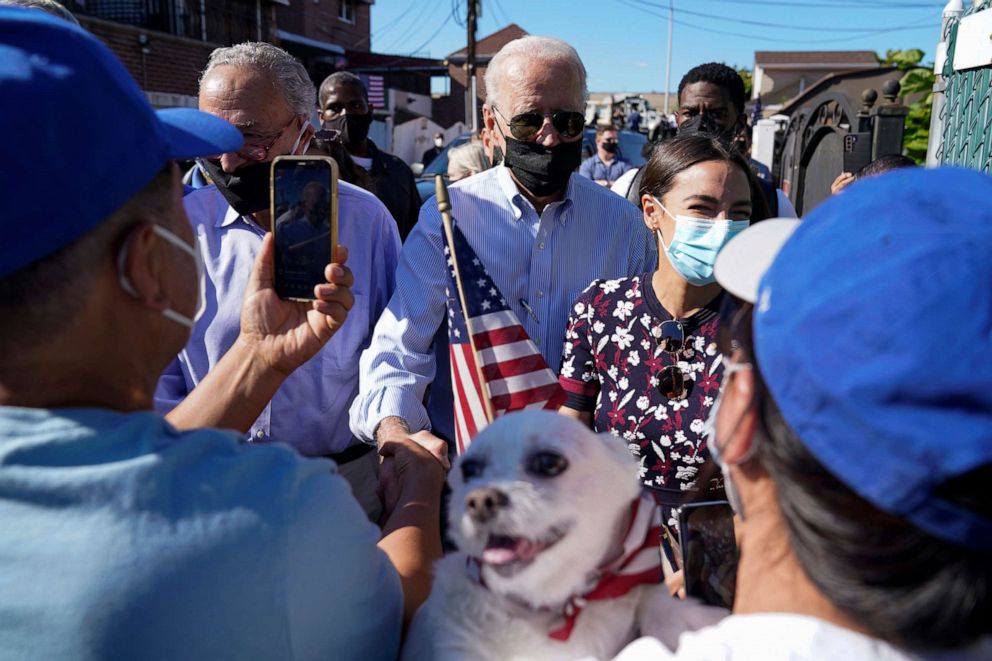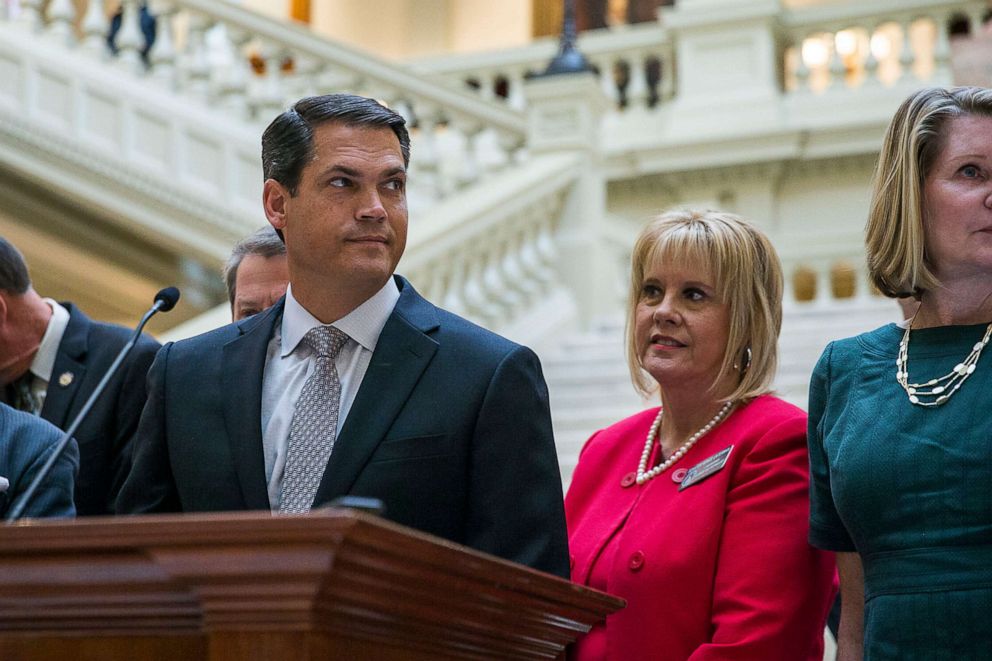'Big lie' brings ever-bigger consequences: The Note
Ten months on, the political landscape continues to be shaped by the "big lie."
The TAKE with Rick Klein
For all the delays and the drama, Texas Gov. Greg Abbott's signature on his state's GOP-backed voting reforms came with relatively little fanfare on Tuesday.
While much of the action has been quiet, it's striking to see how much of the political landscape continues to be shaped by the "big lie" told by former President Donald Trump and his supporters, a full 10 months after Trump lost.
Including Texas, 17 Republican-controlled states have new voting restrictions in place in time for 2022 -- via bills at least partly inspired by the mistruths told by the former president.

The so-called "audit" of last year's election results in Arizona has still produced no formal results. It has, though, lingered long enough for some Republican leaders in Wisconsin and Pennsylvania to launch copycat efforts.
Trump's steady stream of endorsements and statements have made clear that buying into his lies about the election are a prerequisite for his consideration. A rally coming together in Georgia later this month is sure to feature rehashing of false claims.
It's not just history, either: The leading Republican in next week's California recall election is warning of "shenanigans" that he says could spark legal challenges in that race. And the Trump-endorsed GOP Senate candidate in Nevada has brought up possible preemptive legal challenges in his campaign -- where polls close in a mere 14 months.
The rhetoric and many of the new laws are being met with lawsuits and anger among Democrats. But just as the Texas Democrats couldn't stop their state's law from being passed, national Democrats are no closer to passing the bills they have offered as their primary responses.
The RUNDOWN with Averi Harper
Biden toured neighborhoods in New York and New Jersey Tuesday that were damaged by remnants of Hurricane Ida, putting the spotlight on not only the nation's aging infrastructure but also the continued threat climate change poses to communities.
"The evidence is clear. Climate change poses an existential threat to our lives, to our economy and the threat is here -- it's not going to get any better," Biden said in Queens. "The question is, 'can it get worse?' We can stop it from getting worse."
Biden used the trip to make the case for his infrastructure and economic plan, which includes efforts to address the impact of climate change.
"Climate change is here. We're living through it now," Biden said at a briefing in New Jersey. "I think we're at one of those inflection points where we either act, or we're gonna be in real, real trouble. Our kids are gonna be in real trouble."

The trip comes as the administration works to get the bipartisan infrastructure deal to the president's desk for signature. The larger $3.5 trillion spending bill Democrats are hoping to pass without Republicans through the budget reconciliation process faces an arduous path to passage, as moderate Democrats in the Senate oppose the large price tag.
Platitudes about "listening to the scientists" and promises of future investment to shore up infrastructure to withstand extreme weather can only go so far while lawmakers duke it out in Washington. In the meantime, Americans across the country will be forced to continue digging themselves out of the rubble left behind by extreme weather.
The TIP with Quinn Scanlan
Georgia Lt. Gov. Geoff Duncan has a vision -- and a warning -- for the Republican Party.
Duncan imagines a GOP that's empathetic and strikes a civil tone; that promises policy over slogans; that values truth and where the standard for inclusion is more than "loyalty and subservience to" Trump.
"Denialism, misinformation, and misplaced blame will not put a Republican back in the White House in 2024," Duncan writes in his book, "GOP 2.0," out Tuesday. "The GOP has a choice: Stop following this crazy path to nowhere or get used to losing."

With four competitive statewide races on the ballot in 2022, his newly purple home turf is the test case for Duncan's theory.
Last week, Trump endorsed state Sen. Burt Jones in the primary to succeed Duncan. When it comes to the election, Jones and Duncan are polar opposites. Duncan, one of the first Republicans to call out Trump's lies for what they are, stripped several senators of their committee chairmanships, in part, he writes, for "aggressively spreading untrue and debunked fraud claims." Jones was one of them.
Jones winning the primary, where he faces the three-term senate president pro tempore, would signal how influential Trump remains among Georgia Republicans. But if he, and other Trump loyalists, go on to lose the general, the party may be better served in the long run by revisiting Duncan's vision of a GOP 2.0 than following in Trump's footsteps by crying fraud.
ONE MORE THING
Just 49% of Americans see the United States as safer from terrorism than it was before the terrorist attacks of Sept. 11, 2001, down from 64% a decade ago, according to a new ABC News/Washington Post poll. Forty-one percent instead say the United States has become less safe since 9/11, reflecting both renewed partisan divisions and the tumultuous withdrawal of American forces from Afghanistan.
THE PLAYLIST
ABC News' "Start Here" podcast. Wednesday morning's episode features ABC News contributor Dr. John Brownstein on the fight to keep children protected against the delta variant. Then, ABC News Foreign Correspondent James Longman reports on the Taliban's efforts to establish a government in Afghanistan. And, as we approach the 20th anniversary of the Sept. 11 attacks, one woman tells her story of escape from the South Tower's 73rd floor and the impact it still has on her to this day. http://apple.co/2HPocUL
FiveThirtyEight's Politics Podcast. Late Wednesday night in a 5-4 decision, the U.S. Supreme Court chose not to block a Texas law banning most abortions after the sixth week of pregnancy, making this the most restrictive abortion law in the country. The court did not rule on the constitutionality of the law, but the law is now in effect, effectively prohibiting most abortions in the state. In this installment of the FiveThirtyEight Politics podcast, the crew discusses the legal debates currently playing out, what the court's decision could mean for the future of Roe v. Wade, and where Americans stand on abortion restrictions in general. https://53eig.ht/2WOaKcg
WHAT YOU NEED TO KNOW TODAY
Download the ABC News app and select "The Note" as an item of interest to receive the day's sharpest political analysis.
The Note is a daily ABC News feature that highlights the key political moments of the day ahead. Please check back tomorrow for the latest.




